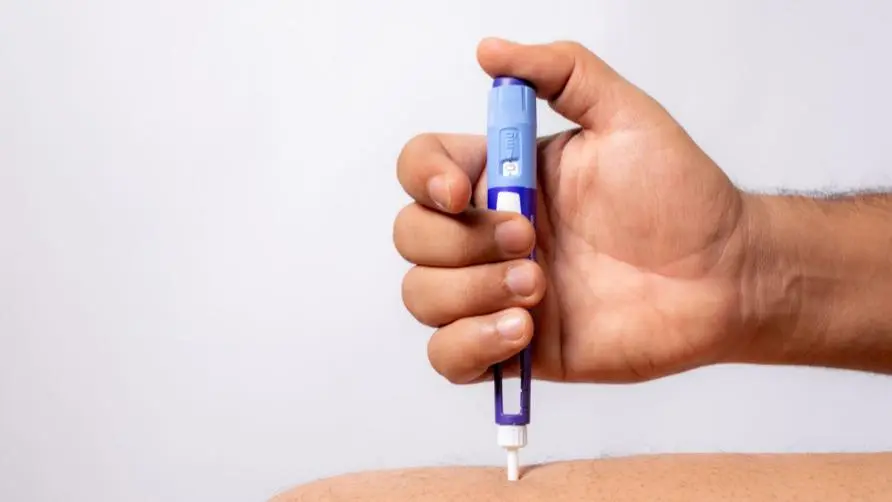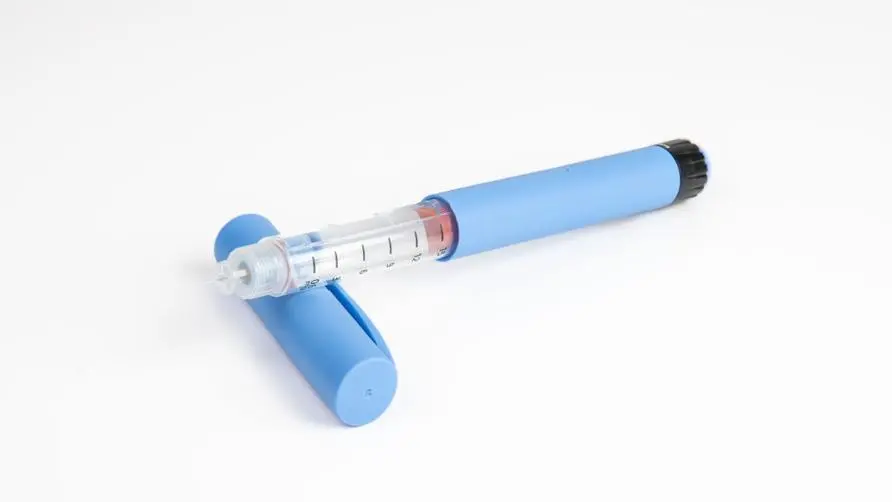The new king of slim pens is here? Losing 15% of your weight increases your chances of winning by 3 times! Study: Mounjaro is better for weight loss than Ozempic

Losing 15% of your weight triples your chances of winning? Data reveals the benefits of Mounjaro vs. Ozempic
Obesity is called the epidemic of the 21st century and is closely related to health problems such as “metabolic syndrome”. GLP-1 injection drugs, originally used to treat diabetes, are known as the “slimming pen” because of their obvious weight loss effects, and have become the most popular drug choice in recent years. A recent study published in a preprint showed that the interventional injection Mounjaro (Tirzepatide) has a greater weight loss effect than Ozempic (Semaglutide). The former is three times more likely to lose at least 15% of weight than the latter. Tirzepatide has a dual pharmacological mechanism of simultaneously activating GLP-1 receptors and GIP receptors, and is considered to have more significant blood sugar-lowering and weight-loss effects than GLP-1RA alone.
Due to the current lack of head-to-head trials for direct comparison of drugs, the study used a big data system to collect data from more than 18,000 Mounjaro and Ozempic users, 52% of whom were diabetic patients. Analysis shows that after using Mounjaro for 3 months, the average weight loss is 6%, while the average weight loss for Ozempic is 4%; after 6 months of use, Mounjaro has an average weight loss of 10%, and Ozempic has an average weight loss of 6%; after 12 months, Mounjaro has an average weight loss of 6%. 15% heavier, Ozempic lost an average of 8%.
Mopelola Adeyemo, a clinical lecturer at the University of California, Los Angeles and a specialist in diabetes and obesity, pointed out in a foreign interview that although this study is only a data analysis, it is not significantly different from the clinical trial results and has a certain degree of credibility. Clinically speaking, if patients cannot accept specific GLP-1 injection drugs, they can also use another drug instead. Adeyemo emphasized that both Mounjaro and Ozempic have been proven to not only help with weight loss, but also have beneficial effects on diabetes and cardiovascular protection. Empirical benefits.
The paper has not yet been formally peer-reviewed, and formal data from the head-to-head trial of Mounjaro versus Ozempic (SURMOUNT-5) is expected to be released in 2025. Novo Nordisk, the manufacturer of Ozempic, told foreign media that the comparative conditions analyzed in the paper are unfair, and there is currently no relevant clinical data to support it, so it should not be used as a reference for clinical treatment. Eli Lilly, the manufacturer of Mounjaro, reminds that all injectable GLP-1 drugs should be used in accordance with the indication guidelines.
GLP-1 helps control sugar and reduce weight. Appropriate intervention drugs for obese people to avoid weight regain
GLP-1RA (human glucagon-like peptide-1 receptor agonist) is an “incretin” analogue of a synthetic peptide. After GLP-1 binds to the receptor, it can stimulate insulin secretion and delay gastric It empties and affects the hypothalamus to suppress appetite and other effects. It is found to have the effect of lowering blood sugar and reducing weight. It is one of the most commonly used diabetes drugs besides insulin.
The GLP-1 injection drug was originally used to treat type 2 diabetes. Subsequently, it was found that the subjects had significantly lost weight, and then it was derived from relevant clinical trials for obese people and gradually obtained indications for weight loss. Common side effects of using GLP-1 are constipation, diarrhea, nausea, vomiting, hypoglycemia, and headache. The incidence of side effects can usually be reduced by slowly increasing the dosage.
Obesity has become one of the most important health problems of modern people. However, is it necessary to treat obesity with drugs? The “Nature Medicine” paper points out that losing 5-10% of weight can reduce the risk of type 2 diabetes, while also improving cardiovascular disease risk factors (such as hypertension) and reducing the chance of obesity complications (such as osteoarthritis). For the average person, the foundation of weight management is still based on a healthy lifestyle, including overall calorie control, appropriate exercise (150 minutes per week) and behavioral adjustments. However, when the weight loss goal is still not achieved after adjusting the lifestyle, or when weight loss is difficult due to complications from overweight, it is appropriate to intervene with obesity treatment drugs to achieve the purpose of weight management and avoid weight regain.
Source:
Tirzepatide Once Weekly for the Treatment of Obesity
Lilly’s Mounjaro Leads to More and Faster Weight Loss Than Novo Obesity Drug, Data Analysis Finds
Further reading:





